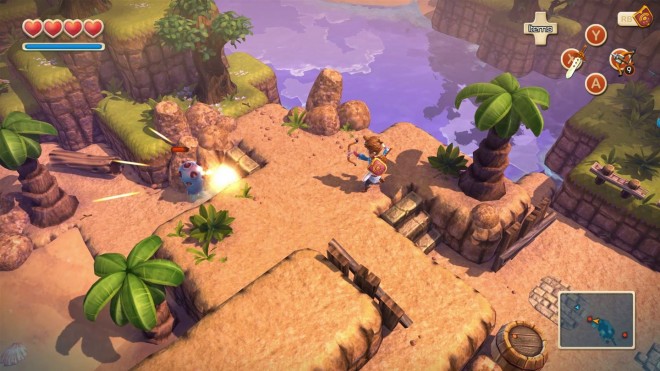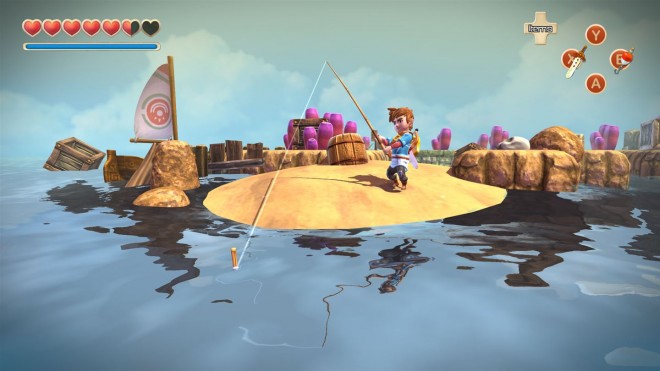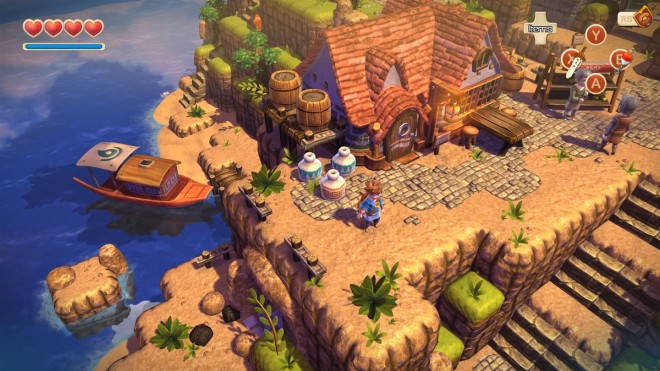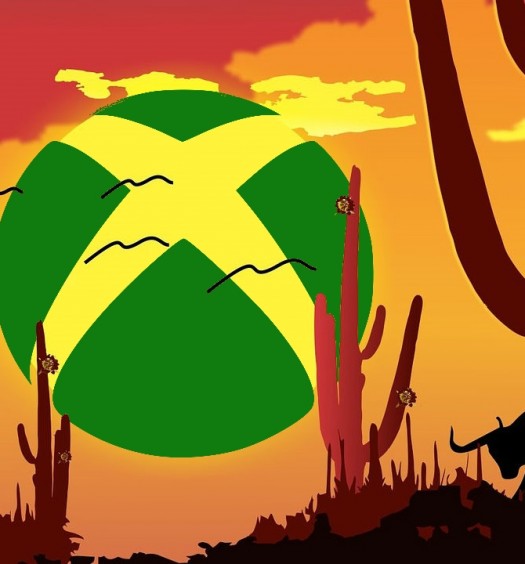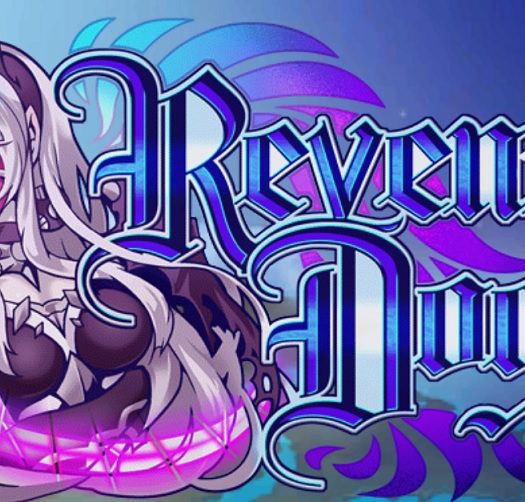They say imitation is the sincerest form of flattery, and I honestly cannot think of another game that is such an obvious and well crafted love letter as Oceanhorn. The game feels like a mix of two of the Legend of Zelda games, namely A Link to the Past and The Wind Waker. Indeed, from the way that the game opens with the disappearance of the hero characters father, to the fact that it is split into a number of distinct dungeons spread between islands, Oceanhorn is near identical to the Nintendo series that inspired it in all but name.
That’s not a bad thing though, because we are talking about a game that emulates some of the very finest action-adventure games ever made. You’ll be pleased to know, Oceanhorn is so unashamed in its emulation that it might just get away with living up to the expectation set by its lofty aspirations. The beautiful graphics, rewarding gameplay and joyful animation are all highly reminiscent of the style set by the Zelda games. The real question is, will it step out of the long shadow cast by Link and his pals in order to stand alone as a game that is good enough in its own right, or will it fail miserably as an also-ran?
Here’s what I liked:
Islands of adventure – Whatever game it may or may not be emulating, Oceanhorn is still a beautiful, fun and light-hearted adventure game that offers charm, exploration and challenge in equal measure. The structure of the game is built around numerous islands ranging in size from miniscule to large. Each island harbors people or places of interest, with a few being home to dungeons that must be explored and conquered for rewards. There are three major dungeons with bosses that must be defeated, but many of the smaller islands also harbor caves and buildings that serve as lesser distractions, whilst still offering a useful bounty.
Buena vista – I rarely consider graphics to be among the most important things to measure when reviewing a game, but considering its indie status, Oceanhorn is a particularly beautiful game. Everything about it is colorful, charming and lively, with cute, likable characters and enemies that are weird and menacing in equal measure. Although the player is simply a passenger for the oceangoing sections (as I will describe later) they are particularly vibrant and lovely. The bright blue water and loads of interesting things to look (and shoot) at standout along the voyage.
Sound of success – The soundtrack is one of Oceanhorn’s most outstanding features. With input from Nobuo Uematsu and Kenji Ito, it has the pedigree, and it sounds simply wonderful. Each track conveys a sense of awe, wonder, exhilaration or danger as befits the situation in which it is being employed. To me, the soundtrack is more befitting of a Studio Ghibli movie than a video game, and I believe that is high praise indeed.
Here’s what I didn’t like:
A little bit repetitive – Oceanhorn offers a fun, light-hearted and sizeable adventure, but due to the way that it locks itself into emulating some of Nintendo’s finest adventures, it actually becomes repetitive by the end. In particular, segments lack the boldness and beauty that make the game stand out. The lengthier underground sections stand out as especially repetitive.
A few technical hitches – Although minor, Oceanhorn does have a few technical flaws that I found annoying. Most of these relate to the way that the maps are built, with each island having clearly been constructed from a toolkit containing small square blocks (think of Minecraft) that lead to navigational challenges. It’s not always clear which ledges can be jumped off as some feature invisible walls. Worse than that, it’s even less clear what ledges can be climbed onto, with some half height blocks being climbable and others not. Perhaps linked to this point is my other complaint, which is that it’s possible to navigate to places that the game doesn’t want you too reach. This leads to either cheap victory or getting stuck.
Passenger ride – Whilst they are especially beautiful, the seafaring sections of Oceanhorn feel like a missed opportunity to me. Players choose an island (with only those known to the player being available for selection) that they want to navigate to, then the game does the rest. There is no opportunity to explore, or to feel as if you are in control of the tiny boat, which is a real shame.
Wrap-up:
As it is such a blatant Zelda clone, Oceanhorn will certainly appeal to those people who wish to relive the classic 16-bit era of simpler, cuter action adventure games. For modern gamers, there is still a lot of content here and a ton of serviceable action, but the structure and repetition that creeps in later may begin to grate on some.
Score: Reader’s Choice
Oceanhorn – Monster of Uncharted Seas was developed by Cornfox & Bros and published for Xbox One by FDG Digital. It was released September 7, 2016 for $14.99. A copy was provided for review purposes.


